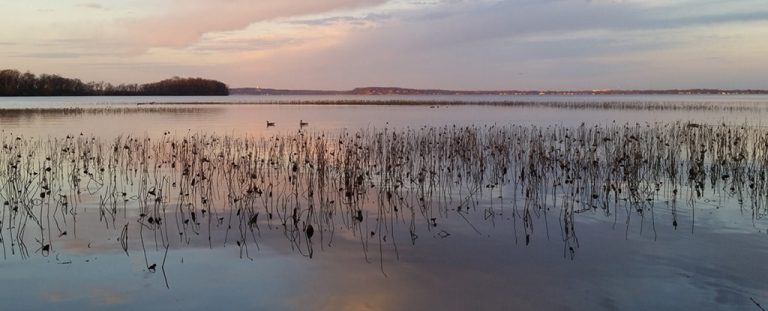Lake Mendota Wisconsin’s lake is transformed by changing seasons — covered in ice in winter and algae in summer — and a new study shows how these cyclical changes drive the lake’s bacteria into evolutionary loops.
Led by researchers at the University of Texas at Austin, the team behind the study analyzed 471 samples of lake microbes collected over 20 years, examining genetic variations within and between species over time. time.
The data showed that thousands of species of bacteria evolved over generations and then evolved to a virtually identical state as the seasons changed. Since microbes only live a few days, we are talking about genetic evolution crossing thousands of generations in the space of a year.
These cycles also repeated from year to year, like a video played and then replayed in reverse, returning to the original starting point. Of the 2,855 bacterial genomes studied, cyclical seasonal changes were found in 80% of them.
“This study is a game-changer in our understanding of how microbial communities evolve over time,” said marine scientist Brett Baker of the University of Texas at Austin.
“This is just the beginning of what these data will tell us about microbial ecology and evolution in nature.”
As environmental conditions changed, the analysis showed that different bacterial strains were able to thrive and become dominant – only to lose ground to other strains as the seasons changed. About 20 percent of the species studied showed a more sustained pattern of genetic change, spanning decades.
This was particularly evident in 2012, when the lake experienced a hotter and drier summer than normal. The team noted a substantial change in the genes managing the bacteria’s functions. nitrogen metabolisms that year – most likely due to lower levels of nitrogen-producing algae, resulting from less water flow into the lake.
With the help of a supercomputer to dramatically speed up the process, the researchers assembled the so-called metagenomes from each water sample, a technique designed to closely examine the genetic sequences of DNA fragments over time.

“Imagine that the genome of each species was a book and that each small fragment of DNA was a sentence.” said microbial ecologist Robin Rohwer of the University of Texas at Austin. “Each sample contains hundreds of books, all broken up into sentences.
“To reassemble each book, you need to figure out which book each sentence came from and put them back together in order.”
The results suggest that ecology and evolution appear to go hand in hand rather than operating separately – and that’s an important perspective for researchers, especially when studying a planet that continues to heat.
Knowing which bacterial strains will dominate helps scientists determine how much carbon lakes might absorb, for example, and how aquatic food chains might be affected by adaptations to warmer seasons.
” Climate change slowly changes seasons and average temperatures, but also causes more abrupt extreme weather events, ” said Rohwer.
“We don’t know exactly how microbes will respond to climate change, but our study suggests that they will evolve in response to these gradual and abrupt changes.”
The research was published in Natural microbiology.


